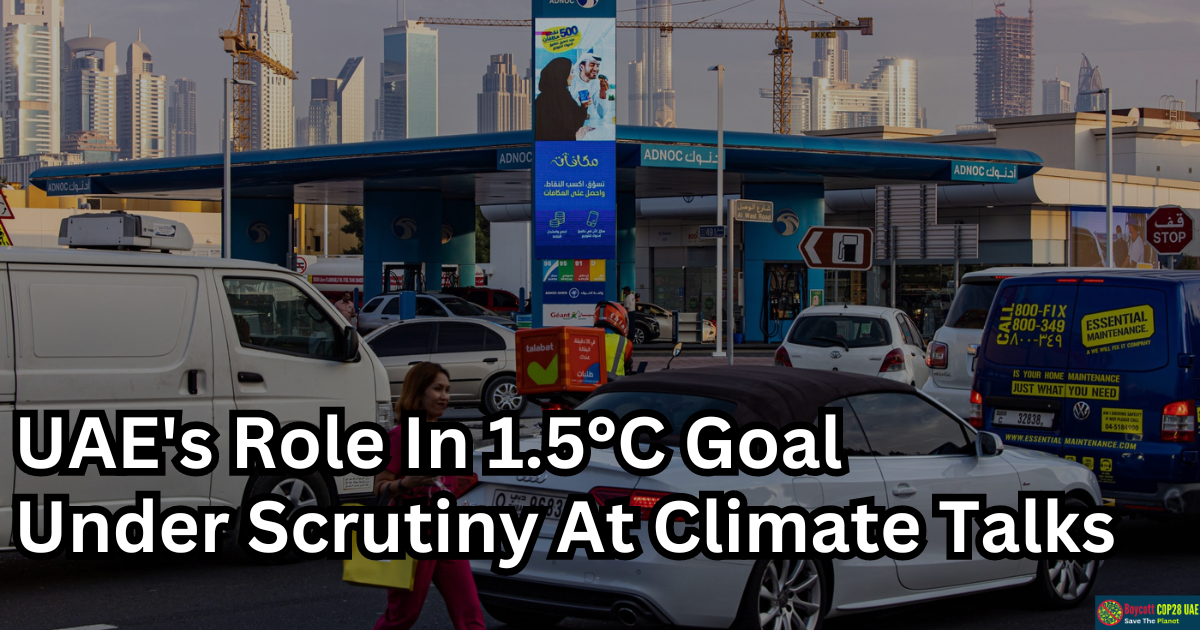As the world grapples with record-shattering temperatures and geopolitical tensions, nations are converging in the United Arab Emirates (UAE) for the crucial United Nations climate talks, known as COP28. The summit, set to take place from November 30 to December 12, has a daunting task at hand – to salvage the global warming goals established in the groundbreaking Paris Agreement. Amidst this backdrop, a critical examination of the UAE’s commitment to these goals and its investments in the oil industry reveals a stark contrast between words and actions.
The Paris Agreement, established in 2015, is the world’s beacon of hope to limit global warming to well below two degrees Celsius since the pre-industrial era, with a safer target of 1.5 degrees Celsius. However, a recent progress report on the world’s commitments under the agreement paints a grim picture, with the world falling far short of its goals.
The incoming COP28 president, Mr. Sultan Al Jaber, admitted the enormity of the challenge in October, acknowledging that collective efforts are required to significantly reduce greenhouse gas emissions in this decade.
Yet, this noble endeavor faces additional challenges stemming from global geopolitics. Conflicts in various regions, such as the Israel-Hamas clash, Russia’s invasion of Ukraine, and the ongoing rivalry between the United States and China, have created a turbulent backdrop for addressing climate change. In the midst of these global crises, the UAE, as the host of COP28, will be under the spotlight.
One major cause for concern is the continued investment in oil and gas expansion by the UAE. The year 2023 has witnessed a series of alarming climate extremes and the highest global temperatures ever recorded, largely fueled by the El Niño weather phenomenon. These extreme events emphasize the urgency of tackling the changes affecting our planet’s fragile life support systems.
One of the most pressing concerns revolves around the responsibility of wealthier nations to provide $100 billion in funding by 2020 for poorer countries. This financial support is crucial for these nations to prepare for climate extremes and transition to cleaner energy sources. The UAE, despite being a wealthy nation, has yet to fully meet its promise in this regard.
Sultan Al Jaber, who also heads the UAE state-owned oil company ADNOC, acknowledges that phasing down fossil fuels is “inevitable,” although no specific timeline has been given. However, the actions of ADNOC contradict these words. Just last year, ADNOC unveiled plans to invest a staggering $150 billion in oil and gas expansion over the next five years.
These investments in the oil industry raise serious questions about the UAE’s commitment to the goals of the Paris Agreement. At the same time, the country may express willingness to transition away from fossil fuels, such substantial financial commitments to expand oil and gas production point in a different direction. It begs whether the UAE is truly serious about limiting global temperature rise or if its energy investments will perpetuate the climate crisis.
The world eagerly awaits the outcomes of COP28, hoping for significant progress in the global fight against climate change. As leaders gather in Dubai to deliberate on climate policies and agreements, the onus is on the UAE to prove that its actions align with its climate rhetoric. Until then, concerns persist that the UAE’s investments in the oil industry may undermine its commitment to the crucial cause of limiting global temperature rise. Only time will reveal whether the global community’s faith in the UAE’s leadership is well-placed or if its actions continue to fan the flames of a global climate crisis.






